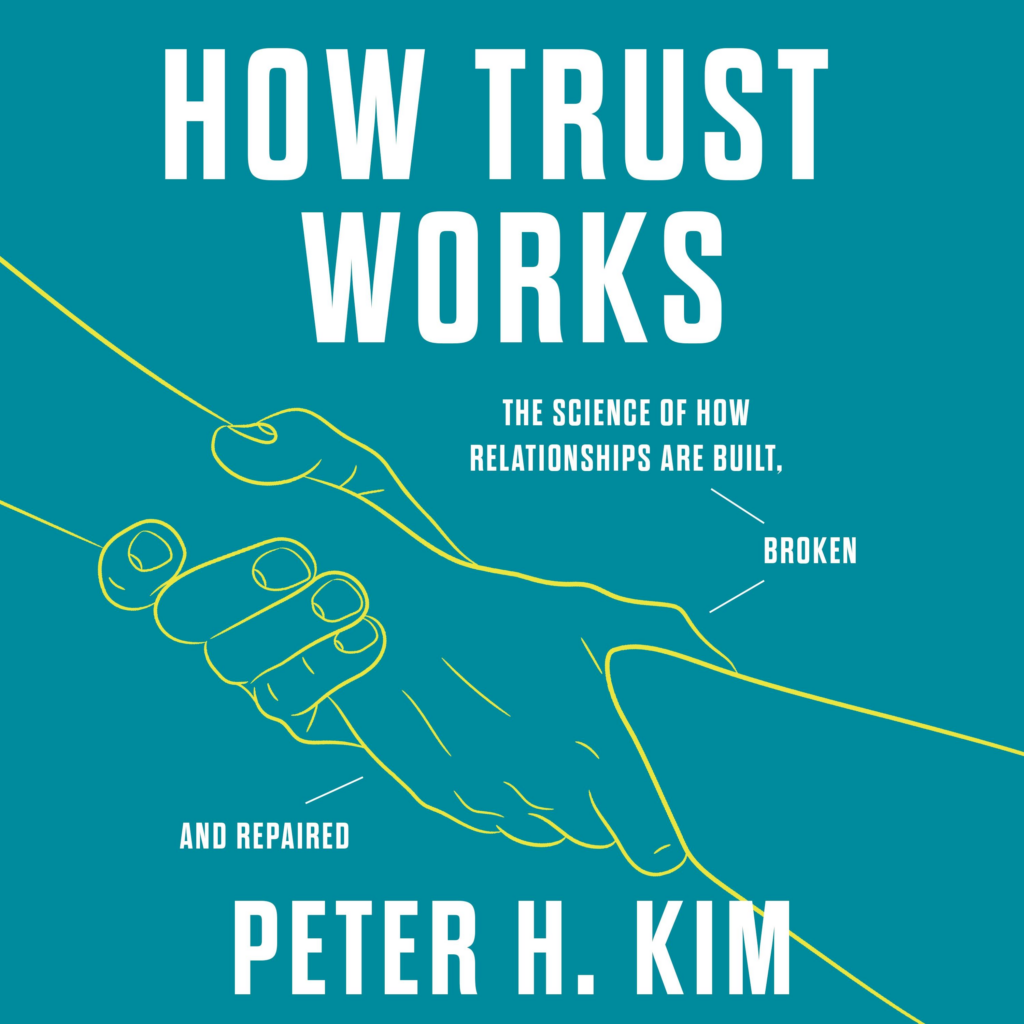“The worst kind of monster is often the one that anoints itself the hero, based on self-serving conceptions of what’s right, since this makes it easy to attack others without a shred of guilt.”
-Peter H. Kim.
A Lesson in Spiritual and Social Wellness…
As an Amazon Affiliate it is policy to inform you that this is an advertisement. However, this is still a reflection of a great book that I’ve read many times over. I believe it would benefit any who may read it. You can find the link for it in my references located at the bottom of this page.

Security.
“Trust no one…” Now there’s a popular piece of advice.
But popular doesn’t necessarily mean good now does it? Isolation in short periods is good for focus, but if prolonged, it is damaging to the spirit. There will always be something very wrong with this world. Evil people are out there, but they aren’t as common as you might believe. To survive, we must be capable of darkness, even the most noble of us. Just like how you have different sides to your character, so does everyone else in the world. You will need different types of people for different objectives. No matter how hard you avoid it, there will come a time when absolute faith in another may be all that you have.
So let’s make sure we surround ourselves with the right people…
You trust easier than you’d like to believe. To have zero trust in someone is to view them as a “potential threat.” You would never leave the house if you thought everyone was out to get you. Therefore, your faith in the world is at least higher than zero. Trust is an instinctual response. It isn’t something you can decide not to do.
Trust is directly tied to safety. The security measures we depend on allow us to collaborate as if we trust one another. Any pain caused, whether intentional or negligent, causes faith to falter. There are multiple ways to harm someone. This is the reason why the barriers we put up are often ineffective. Our barriers are not the only part of the vetting process.
Trust is all about circumstances. Forming a bond isn’t only up to you. Part of the vetting process is making the other person feel safe in your presence. This takes a good deal of self-awareness on your part. Since trust is instinctual, you must be aware of the impressions you make; the first impression in particular…

Robert de Niro “You Talkin’ To Me?” Scene from Taxi Driver
Trustworthiness.
The first impression isn’t everything. However, mastering it would make all the difference in your life. Trust would be easier to gain. Enemies would be easier to trick. Your confidence even gets a boost. No one is going to willingly show you the worst side of themselves. Because reputation matters.
It is said that a good reputation takes years to build but only seconds to destroy. Your overall effect on the environment is tied to your reputation. Make sure you treat everyone with dignity and leave an area in better condition than when you found it. Your intentions should always be clear. It wouldn’t serve you to be a complicated person.
People tend to believe what is easiest to understand. Would you make a deal with someone who was needlessly complex? Manipulation only corrupts the vetting process. Once you come off as manipulative, your reputation takes a nasty hit. When it comes to your reputation, you are as evil as the worst thing you’ve done.
It is one thing to appear incompetent. That issue is resolved with time and guidance. It isn’t banishment worthy, but only when it comes to experience. No system, community, or individual would work with a treacherous character. It all comes down to the intent behind the harm that was caused. This is made clear by a proper apology.

“This is what ‘sorry’ looks like.” Sindri and Atreus’ conversation from God of War Ragnorok
Apologizing is an action, not a conversation. In cases of severe unintentional damage, a verbal apology comes last. They say the best apology is a change in behavior. But depending on the extent of your transgression, that would only be the beginning of restoring trust. You also owe them an explanation with complete transparency for your crime against them. You have to make a suitable sacrifice to help repair the damage. You have to acknowledge what you could have done better to avoid the issue. Then finally, you say that you are sorry and that you will never do it again. Apologizing is hard.
Apologizing sometimes may not even be worth it. The damage done may have been too great. Apologies may even make matters worse. Some people are impossible to apologize to. You can only accept your character being called into question for so long. You may have done everything you could to help the victim in restoring themselves. It’s not wrong to think that it’s easier to just move on without attempting reconciliation. It is ultimately up to the victim to restore themselves.
Your satisfaction is your job. We must realize when our expectations are unrealistic. Respect and gratitude make people work much harder for you. Most people like being considered noble by their peers. When someone’s good reputation is at stake, more often than not, people will follow through on their deals without guile. If something were to go wrong, it is wise to withhold blaming the violator.
Part of learning how to trust is forgetting how to blame. People will often defend their reputation to the death before taking accountability. Our lack of accountability stems from our desire to be good. As well as from the desire to avoid pain. There is a time and place for darkness. Even for good people. You never really know what’s going on with the other person. A good vetting process allows the other space and time to correct inevitable mistakes.

Justice.
If someone thinks they will be harshly judged for a mistake, even a good person will be dishonest. Though we hate dishonesty, those of us who aren’t delusional could understand why someone would want to keep certain secrets from us. Dishonesty should only count as a betrayal if it is consistent. Reducing your capacity to blame others will encourage honesty and confidentiality from people more often. If you are quick to blame, you are unfit to lead.
Reconciliation is about justice. “Justice” and “Retribution” are closely related, yet separate concepts that people confuse all the time. We tend to think the two of them are synonymous. But justice at its core is about everyone getting what they deserve. It’s about achieving a balance. The problem with retribution is that it’s subjective. If a delusional person has been harmed, they will demand a blood sacrifice or some other absurd payment for their “suffering.”
Vengeance is something we often take too far. Pain can only make you feel sorry for yourself. If the punishment doesn’t serve to help the offender to see the error of their ways, the punishment is for selfish reasons. Retribution is chaotic in nature. We must aspire not to take dignity away from the violators. Only to restore dignity to the victim. It serves no purpose to turn a violator into another victim. This isn’t the best result. It starts a negative feedback loop from hell; known as the vengence cycle.

Real trust takes time.
Trust doesn’t start until everyone agrees on what the truth is. It’s about agreeing on what needs to happen. The vetting process isn’t just about how good someone is. It’s also about how they handle bad situations. We do what we perceive that we must. There can be no manipulation on your part. Only patience, guidance, and observation. People need time to adjust. They need clear communication. They need to know that they are safe.
Forgiveness should be part of any vetting process. Forgiving someone doesn’t mean you have restored your faith in them. You forgive people for your own sake. Holding a grudge is a grievous affliction that will doom the spirit and all who interact. You shouldn’t leave it to other people to restore your spirit. If someone has truly seen the error of their ways, you have helped them grow as a person. The world is a slightly better place now. That’s something to feel good about. But in the end, satisfaction is your job. Removing blame from your habits will free you spiritually.
Patience is what makes it all work. The vetting process is an expansion of your instinct. It all starts from within. Being a complicated person is nothing to be proud of, so make sure to communicate your intentions clearly. Resist the temptation to be manipulative. All it takes is one of you being delusional to break a bond. You will trust the wrong people if you are out of touch with your instinct. Without patience, you become gullible.

Trust is tricky.
What is right to you may not be what is right to someone else. You could also both be wrong. It is the height of delusion to consider yourself righteous. Evil people are rare in this world. Most people enjoy peace and not having to look over their shoulder. That’s what trust is all about. Nothing can be built without it. There’s no such thing as a one man army. Lone wolves have a high mortality rate. Someone who doesn’t trust at all is just as foolish as someone who trusts too easily. The vetting process is all situational in the end, It is continuous and based heavily on your current circumstances. Just focus on what really matters in the end
How trust works was an excellent read that gives insight on the odd ways trust can be sustained. This is not a how-to guide on how to make anyone trust you. However, the knowledge it provides could help a lot of people. Make sure to check it out yourself and get your own sense of it.
References and Photos
“How Trust Works.” – Peter H. Kim,
“Among Us” – Innersloth,
“Taxi Driver.” – Paul Schrader,
“God of War: Ragnorok – David Jaffe.

